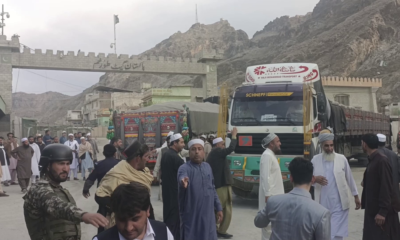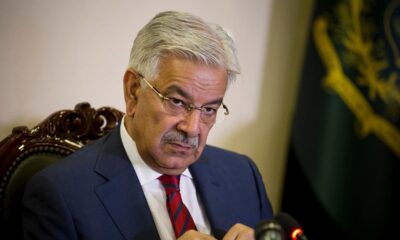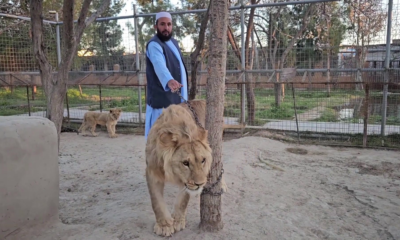Latest News
UNAMA warns of ‘unprecedented’ civilian deaths if violence is not stopped
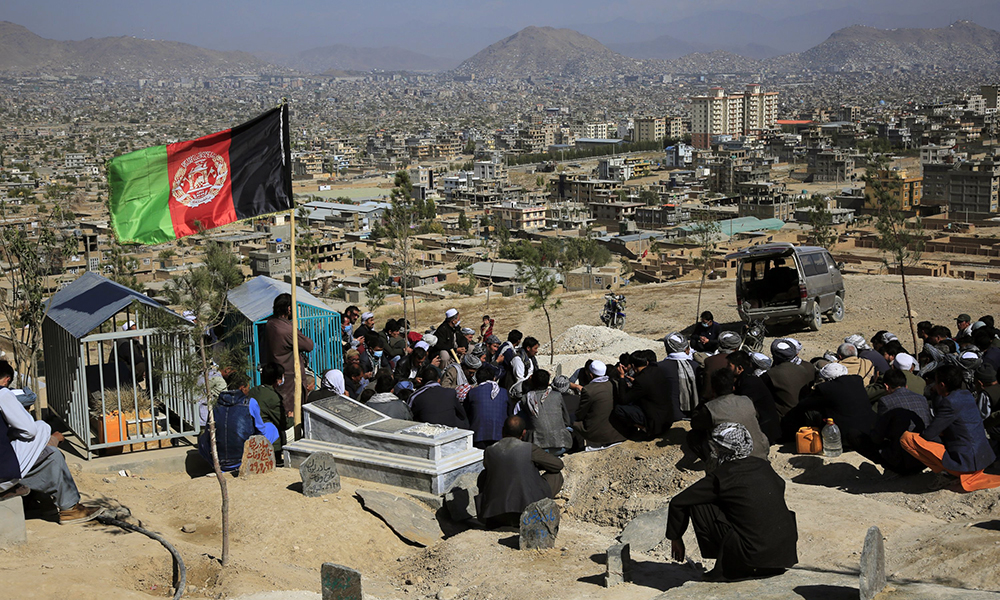
The United Nations Assistance Mission in Afganistan warned Monday it is concerned about the increasing number of reports of killing, ill-treatment, persecution and discrimination in communities affected by the current fighting and its aftermath.
UNAMA warned that Afghanistan could see the highest number of civilian deaths in more than a decade if the Taliban’s offensives are not stopped.
In its six-monthly report, released Monday, UNAMA also stated the pursuit of a military solution will only increase the suffering of the Afghan people and warned that Afghan troops and pro-government forces were responsible for a quarter of all civilian casualties.
“Unprecedented numbers of Afghan civilians will perish and be maimed this year if the increasing violence is not stemmed,” UNAMA head Deborah Lyons said in a statement released with the report.
“I implore the Taliban and Afghan leaders to take heed to the conflict’s grim and chilling trajectory and its devastating impact on civilians.”
The UN envoy, who is also the head of UNAMA, called on the Taliban and Afghan leaders to,
“Intensify your efforts at the negotiating table, stop the Afghan against Afghan fighting. Protect the Afghan people and give them hope for a better future.”
The UNAMA report stated that much of the battlefield action during the most deadly months of May and June took place outside cities, in areas with comparatively low population levels but stated “the UN is gravely concerned that if intensive military action is undertaken in urban areas with high population densities, the consequences for Afghan civilians could be catastrophic”.
During the first half of 2021, some 1,659 civilians were killed and another 3,254 wounded – a 47 percent increase compared with the same period last year, the UNAMA report said.
The rise in civilian casualties was particularly sharp in May and June – the initial period of the Taliban’s current offensives – with 783 civilians killed and 1,609 wounded, it added.
UNAMA blamed anti-government elements for 64 percent of civilian casualties — including some 40 percent caused by the Taliban and nearly nine percent by Daesh.
About 16 percent of casualties were caused by “undetermined” anti-government elements.
But Afghan troops and pro-government forces were responsible for 25 percent, it said.
UNAMA said about 11 percent of casualties were caused by “crossfire” and the responsible parties could not be determined.
The reported stated that Afghan leaders, with the support of the region and the international community, must heed and answer the calls for peace from the people.
According to UNAMA, women comprised 14 percent of all civilian casualties during this period, with a total of 727 women casualties recorded (219 killed and 508 injured), an increase of 82 percent compared with the first six months of last year.
UNAMA stated Anti-Government Elements were responsible for 57 percent of women casualties, while Pro-Government Forces were responsible for 31 percent, and crossfire/other accounted for the remaining 12 percent of women casualties.
Of the 39 incidents of targeted killings that resulted in women casualties, women appeared to have been the main target in 18 of the incidents, resulting in four women killed and 25 women injured.
The high casualty toll among children was also concerning with 682 child casualties (468 killed and 1,214 injured) documented in this period. This was a 55 percent increase compared to the first six months of last year, UNAMA stated.
This included 622 girl casualties (171 killed and 451 injured) and 1,041 boy casualties (293 killed and 748 injured).
Anti-Government Elements were responsible for 50 percent of all child casualties, while Pro-Government Forces were responsible for 34 percent, and crossfire during ground engagements accounted for 12 percent of child casualties.
“Particularly shocking and of deep concern is that women, boys and girls made up close to half of all civilian casualties,” the report said.
UNAMA also noted a resurgence of sectarian attacks against the country’s Shiite Hazara community, resulting in 143 deaths.
Afghan forces spokesman Gen. Omar Shinwari addressed a news conference in Kabul today & rejected UNAMA’s report on civilian casualties by Afghan forces. He said security forces have retreated from many areas to prevent civilian casualties.
The Taliban has meanwhile rejected UNAMA’s report on civilian casualties and called it “biased and untrue.”
“Nowhere in the last six months have the Mujahideen of the Islamic Emirate deliberately killed civilians or carried out attacks that could have resulted in civilian casualties,” the group said in a statement.
Latest News
Trade resumes as Afghanistan and Pakistan reopen key Torkham border crossing
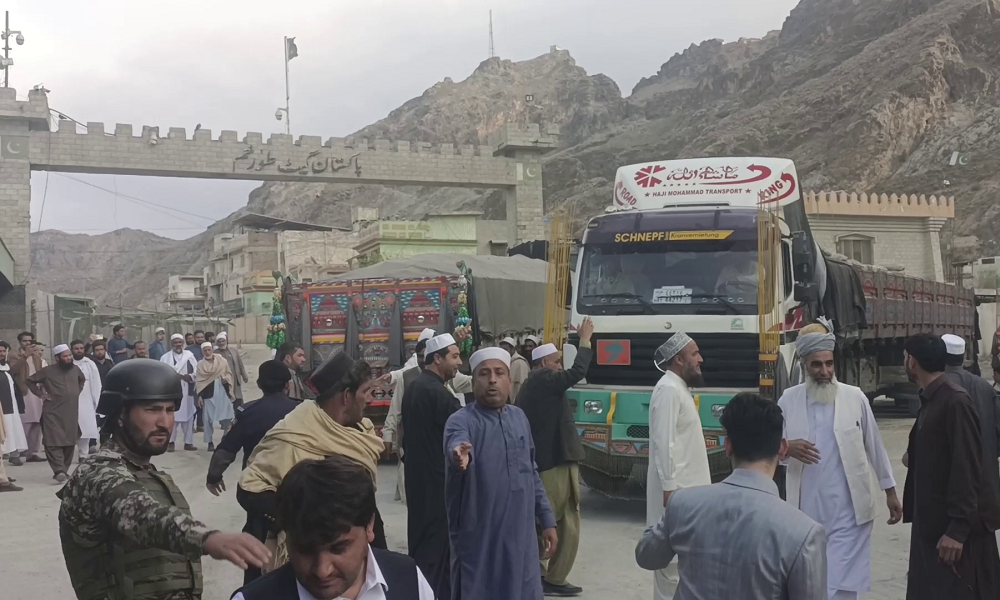
Torkham border gate has been reopened for trade vehicles after Afghanistan and Pakistan jirga members reached an agreement following several rounds of talks.
The border, which had been closed for 26 days, will reopen to the public on Friday.
According to officials from the Nangarhar Chamber of Commerce, several rounds of discussions were held between the private sectors of both sides. The extended border closure cost Afghan traders an estimated $1 million a day, chamber officials said.
Sayed Tayyib Hamad, spokesperson for the Nangarhar Police Command, also confirmed Wednesday that the Torkham gate had been reopened for trucks and will reopen for the public on Friday.
Pakistan closed the gate almost a month ago amid growing tension and subsequent clashes between border forces over the reconstruction of a controversial checkpost on the Afghanistan side of the border.
The move resulted in significant financial losses for traders on both sides.
Afghanistan and Pakistan traders have meanwhile appealed for authorities in both countries to separate trade from politics and said disputes can only be solved through dialogue.
Latest News
Pakistan’s defense minister hints at cross-border operations to tackle ‘terrorists in Afghanistan’
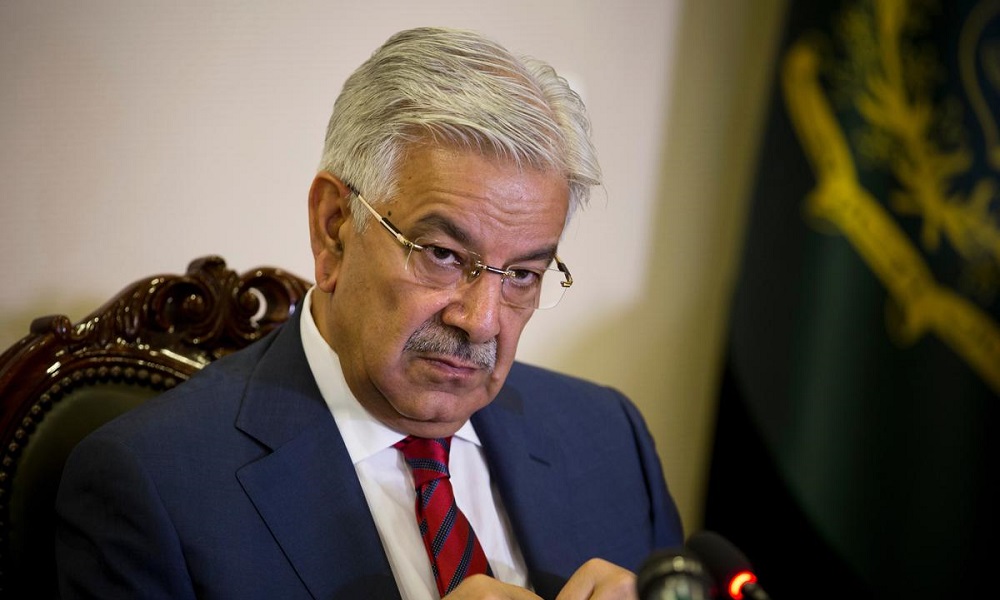
Pakistan’s Defence Minister Khawaja Asif signaled Tuesday that Islamabad could conduct cross-border anti-terrorist operations into Afghanistan, and that Islamabad will pursue its enemy, “regardless of where they are”.
Speaking to Geo News, Asif said Pakistan had repeatedly asked Afghanistan to take action against the Tehreek-e-Taliban Pakistan (TTP), which Islamabad accuses of orchestrating militant attacks against Pakistan from inside Afghanistan.
The Islamic Emirate of Afghanistan (IEA) however has repeatedly said TTP is not operating in the country and that they will not allow any individual or group to threaten the security of another country from Afghan soil.
Asif meanwhile also said that in some instances, Afghan authorities were providing shelter to TTP elements.
“If we have to resort to hot pursuit and enter [Afghanistan] to eliminate our enemies, we will do so. This is a matter of Pakistan’s national security, not friendship. A [lenient] approach will be detrimental to our security,” Asif said.
“We will pursue our enemy, regardless of where they are.
In addition to Asif’s interview, a meeting of Pakistan’s Parliamentary Committee on National Security was held this week to discuss ways to tackle terrorist groups in the country.
The committee, consisting of top civil and military officials, resolved to deal with terrorist groups with an “iron hand”.
This came after last week’s brazen attack by Balochistan Liberation Army militants, who blew up train tracks and held over 440 train passengers hostage in a day-long standoff with security services in a remote mountain pass.
Pakistan said at the time that during the siege, militants had been in contact with their handlers in Afghanistan.
Latest News
Helmand environmental department opens new Zoo
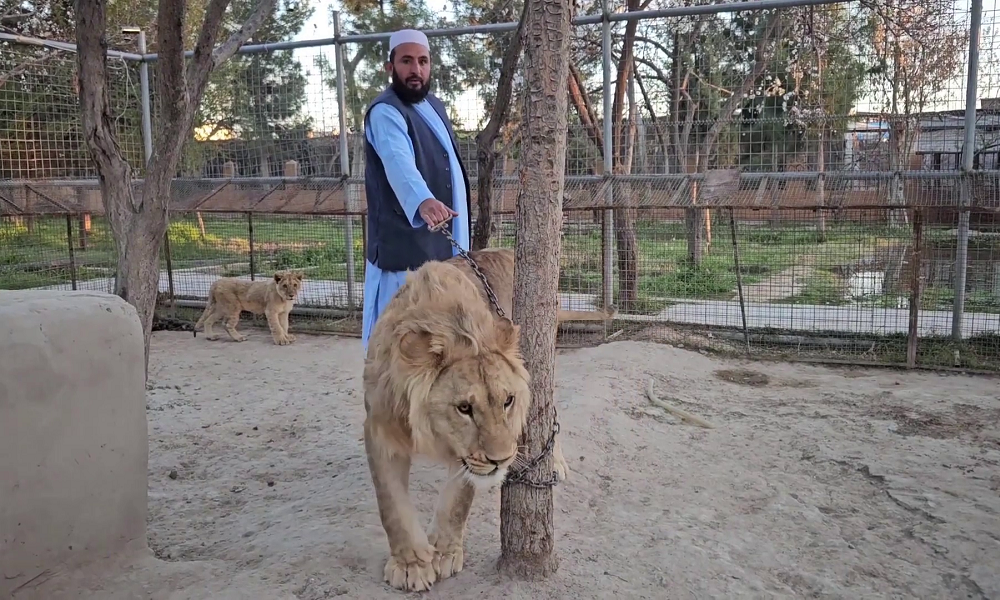
Helmand Environmental Protection Department recently opened a newly-built Zoo in the city of Lashkargar, in southern Afghanistan, in a bid to preserve the country’s wildlife.
The Zoo, which reportedly cost US$600,000 to build, is now home to 52 species of animals and birds.
Zoo officials said that during 40 years of war in Afghanistan natural forests were destroyed, and the number of wild birds and wild animals have dwindled.
Officials said by establishing the zoo, they hope to be able to prevent the extinction of some local birds.
They have however appealed to the government to take the issue seriously and support their efforts to protect Afghanistan’s wildlife.
Helmand resident’s have welcomed the initiative and have also appealed to the government to provide the zoo with support.
Helmand Environmental Protection Department officials said however that when the Islamic Emirate of Afghanistan (IEA) returned to power in August 2021, the authorities banned deforestation, and the hunting of wild birds and wild animals.
These officials said that over the past three years they rescued dozens of wild animals that were held in captivity by members of the public. Most of these were released back into the wild.
Afghanistan has long been known for having diverse wildlife but many of the larger mammals in the country are categorized by the International Union for Conservation of Nature as globally threatened.
These include the snow leopard, Marco Polo sheep, Siberian musk deer, markhor, urial, and the Asiatic black bear.
Other species of concern are the ibex, the gray wolf, and the brown bear, striped hyenas, and numerous bird of prey species.
Most of the Marco Polo sheep and ibex are being poached for food, whereas wolves, snow leopards and bears are being killed for damage prevention
Snow leopards, Siberian tigers and brown bears live in the high elevation alpine tundra regions while the Marco Polo sheep exclusively live in the Wakhan Corridor region of north-east Afghanistan. Foxes, wolves, otters, deer, wild sheep, lynx and other big cats populate the mountain forest region of the east.
-

 Latest News5 days ago
Latest News5 days agoTrump says he would have kept Bagram Air Base
-

 Latest News5 days ago
Latest News5 days agoIMF’s executive board briefed on economic developments in Afghanistan
-
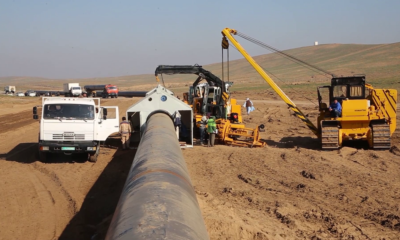
 Latest News5 days ago
Latest News5 days agoMines ministry says work on TAPI project to speed up as weather improves
-

 Latest News5 days ago
Latest News5 days agoTrump administration weighs travel ban on dozens of countries including Afghanistan
-
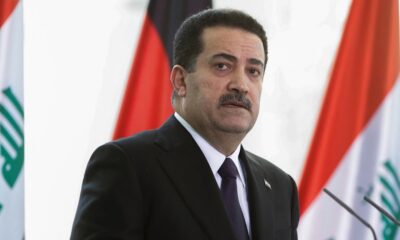
 Regional5 days ago
Regional5 days agoIraqi PM says Daesh leader for Iraq and Syria killed
-

 Latest News4 days ago
Latest News4 days agoVoice of America staff put on leave, Trump ally says agency ‘not salvageable’
-
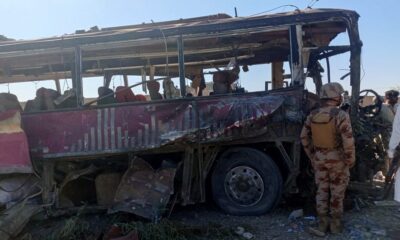
 Regional4 days ago
Regional4 days agoSeparatist suicide attack in southwestern Pakistan kills at least five
-
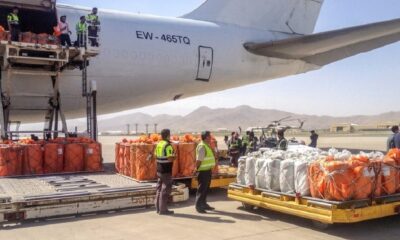
 Business4 days ago
Business4 days agoAfghanistan records trade volume of $292 million via air corridors in 1403 solar year


